Total Maximum Daily Load (TMDL)
The City of McMinnville is an attractive, vibrant community with a vigorous and walkable downtown area. The City has approximately 350 acres of parks including 70 acres of undeveloped natural areas with multiple nature trails - two of those directly adjacent to the South Yamhill River.
McMinnville does not currently have a stormwater, environmental division, or fee structure for dedicated funding. For the most part, stormwater activities such as street sweeping, catch basin cleaning, storm line repair, and detention basin maintenance are performed by our Wastewater Conveyance group and Street Maintenance staff.
Addressing the goals for the Total Maximum Daily Load aligns with the City's commitment to being proactive in maintaining a community where people want to visit, live, and recreate.
What is a Total Maximum Daily Load?
A Total Maximum Daily Load (TMDL) refers to identifying the source(s) of pollution in our waterways and determining how much should be reduced to meet state and federal water quality standards. The ultimate goal of this process is to provide full restoration of the beneficial use of fish consumption, including the protection of aquatic species and wildlife throughout the Willamette Basin.
City of McMinnville Mercury TMDL
On March 3, 2021 the City of McMinnville was notified by the Oregon Department of Environmental Quality of its status as a Designated Management Agency (DMA) to the Willamette Basin. To be a "DMA" means a federal, state or local governmental agency that has legal authority over a sector or source contributing pollutants, and is identified as such by the Department of Environmental Quality. DMAs are responsible for implementing strategies and specific plans for addressing Total Maximum Daily Loads (OAR 340-042-0030(2)).
Despite the lack of an established stormwater program, the City has shown a strong dedication to participating in environmental activities. Staff actively engages with the Greater Yamhill Watershed Council and utilizes an Integrated Pest Management Plan (IPM) in our parks and open spaces. Engineering and Wastewater staff have been innovative with the use of green elements at the Water Reclamation Facility. These activities will continue to serve McMinnville as the community takes on the responsibility of implementing a TMDL Plan.
TMDL Plan Development
In November 2021, the City hired a consultant which spent two days with key staff to provide background and instruction on TMDL implementation and how it applies within our region. Initial steps for plan development focused on the formation of the best management practices to be used by the City as a new TMDL agency. More importantly, the City has been focused on the control measures and their role in pollutant reduction. Emphasis has been placed on educational activities and training to allow time for staff to review the existing water quality-based actions and expand on them. On November 15th, 2022, the Department of Environmental Quality approved of McMinnville’s TMDL plan and the City began implementing the steps laid out.
The City's TMDL Plan, as approved by City Council, is attached below.
Annual Responsibilities
As part of the City’s implementation plan, there are annual responsibilities to educate the public about stormwater, conduct cleanings and inspections of City catch basins and outfalls, and host annual trainings for Public Works staff to educate them about best management practices for erosion control.
Year 1 Implementation (2023)
The City spent the first year developing staff training and resources to improve the City’s capacity to implement the TMDL plan. This included staff members obtaining Erosion and Sediment Control certifications, development of staff training and a staff guide, and creating outreach materials for the public.
· Information for Earth Movers
On November 1st, 2023 the City submitted our annual report to DEQ for their review. On November 30th, 2023 we received an acceptance letter from DEQ confirming that the City had met it's Year 1 implementation goals.
· Year 1 DEQ Acceptance Letter
Year 2 Implementation (2024)
Implementation goals for 2024 include continuing annual responsibilities to provide educational opportunities, support local watershed groups, and perform outfall inspections and cleaning. The City’s next steps will be to coordinate volunteer events to mark catch basin grates and increase awareness of the importance of stormwater management, and begin conducting inspections of City facilities to ensure compliance with best management practices.
The City’s annual report to the Department of Environmental Quality is due on December 1st, 2024.
DEQ is interested in supporting public involvement in these activities. If you have questions or comments please reach out to Logan Adams. Please include your name, email address, and phone number in your correspondence.
Year 3 Implementation (2025)
Implementation goals for 2025 include developing an ordinance that prohibits non-stormwater discharges into the stormwater system and local waterways with an appropriate enforcement response plan in place, develop a comprehensive inventory of both public and private stormwater facilities and a long-term maintenance approach for private facilities, and utilize a volunteer group to conduct restoration work on a local waterway.
The City’s annual report to the Department of Environmental Quality is due on December 1st, 2025
Year 4 Implementation (2026)
Implementation goals for 2026 include developing a local erosion control ordinance and program, and revising relevant City Design Standards to meet the requirements of post-construction regulations.
The City’s annual report to the Department of Environmental Quality is due on December 1st, 2026
Year 5 Implementation (2027)
As part of the final year of the current implementation plan, the City will need to develop a stormwater fee, and review internal documents and permits for consistency with the TMDL plan, adjusting existing documents and ordinances as needed. We will also be require to submit a 5-year evaluation of the plan as part of our annual report. Feedback from DEQ at this time will determine the City’s requirements for TMDL implementation after the initial 5-year plan.
The City’s annual report to the Department of Environmental Quality is due on December 1st, 2027

